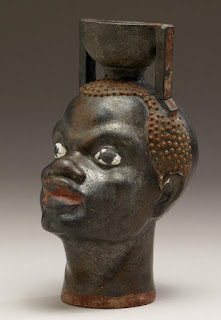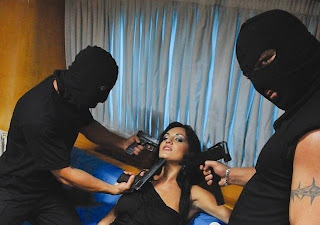GREECE A LAND OF HEROES - AND DISTORTIONS
The controversy over Macedonia owes much to the Greek mind set, writes ALEXANDER ZAHAROPOULOS
("Sydney Morning Herald", Australia, Wednesday, March 23, 1994)
Although the Australian media have overwhelmingly supported the embattled Macedonians, and although most Australians would do so instinctively, it is unlikely that more than a handful
of people are able to fully comprehend the Greek position. It is far from trivial to say that that is because they have not experienced a Greek education.
In retrospect it is clear to me that my 12 years of Greek schooling, mainly in the 70's, conspired to instil in me precisely one attitude and almost unshakeable belief in the purity and unity of the Greek people, language and culture (to which three, I would add "orthodoxy" if my parents, who once had to bribe a priest to allow my Anglican great-grandmother to baptise my brother, had not thought the religion irrelevant and in bad taste).
The attitude I am referring to was taught to us at school in images. Each year, at the school parade to commemorate the uprising against "the Turk", the story was wheeled out of the Greek general who had killed so many infidels in a single day that his sword had to be prised out of his locked hand. Our textbooks exalted those Byzantine kings who had managed to keep the Eastern riff-raff out of the empire. All epochs contributed Great Cleansers to our list of heroes.
Belief in the continuity of Greece against all odds was enabled also by a method of withholding information and sealing off interpretative paths. We had, as children, neither the capacity nor the inclination to explore disunities and "impurities" in the history of the Greek people, language and culture. The Pelloponesian War of antiquity was never more than a family squabble. We could not have savoured the thought that Sparta might have had more in common culturally with Persia (with which it formed alliances) than with Athens. The long history of the land in which we lived had been reduced for us to the opposition of Greek and non-Greek.
One carried such views to maturity. Melina Mercouri (in 1981 I worked as assistant to her senior adviser, Vassilis Fotopoulos) used to tell me that the importance of the Elgin marbles rests in the fact that they are the heart of a body of Greek culture inherited from the ancient past. Until her
recent death she believed that modern Greece, as the sole inheritor, had a duty to preserve the organic coherence of that body. When the bishop of Florina (a town just south of the Macedonian border) said that the very stones he stood on testified to their Greekness, he was, sadly, echoing the opening lines of a popular epic revered modern Greek poet Giannis Ritsos.
It was not until I left Greece that I understood that our education resulted only in intellectual arrogance and moral poverty. I came to know of the strong African and Asiatic influence that operated upon early Aegean culture. I understand that Alexander spread eastward not Greek civilisation but terror and misfortune. I learnt that Salonika had a Jewish culture to rival Vienna's before local Greeks collaborated in its extermination. I was ashamed to discover that in the Greek provinces of Macedonian and Thrace live communities who in this day and age are treated as outcasts because Greek is not their first language. I was horrified to realise that for decades they had resisted policies of forced "hellenisation".
Away from the country I quickly learnt not to use the words "gyfots" (gypsy), "vlachos" (Romanian) and "Arvanitis" (Albanian) for the common swear-words that they are in today's
Greece. When the Greek Government used "Skoupa" ("broom" or "broomsweap") as the code name for the massive drive to remove destitute Albanians from Greece in 1993 I seriously considered changing my surname.
Needless to say, it has not been my intention to suggest that the stifling, chauvinistic education we received cannot be overcome. Not that Greeks are presently incapable of accommodating difference. When the grave of Karolos Kuhn, the genius of the modern Greek theatre, was covered with anti-Semitic slogans in 1992, the Athenian press was swift to condemn the action. Yet even as Greeks are expunging old racisms, in respect of the Macedonian issue there has been precious little dissent from the official government line, and none that I have heard of among Greek Australians. One would like to believe that dissenters are keeping low out of fear.The rest must realise that the conventional method of perpetuating their identity as Greeks -- a method never of their own choosing -- has no place in a modern, tolerant, culturally diffuse world.
Note: Dr Alexander Zaharopoulos left Greece after completing
his secondary education, but returned frequently while
studying at University College, London. He settled in
Australia in 1992.



